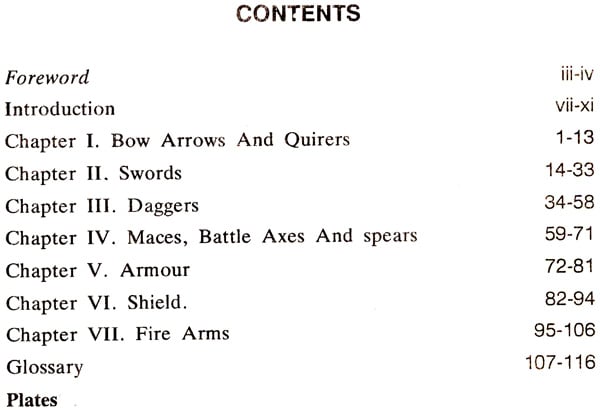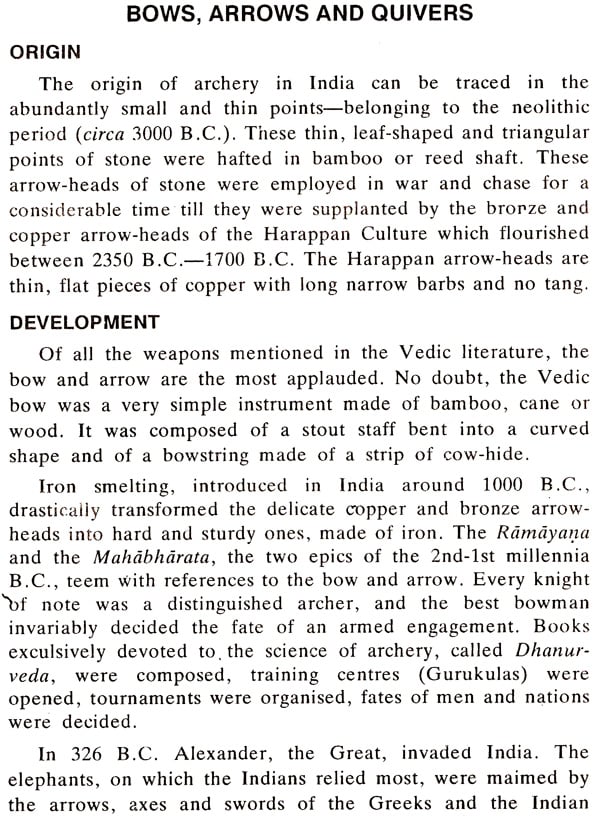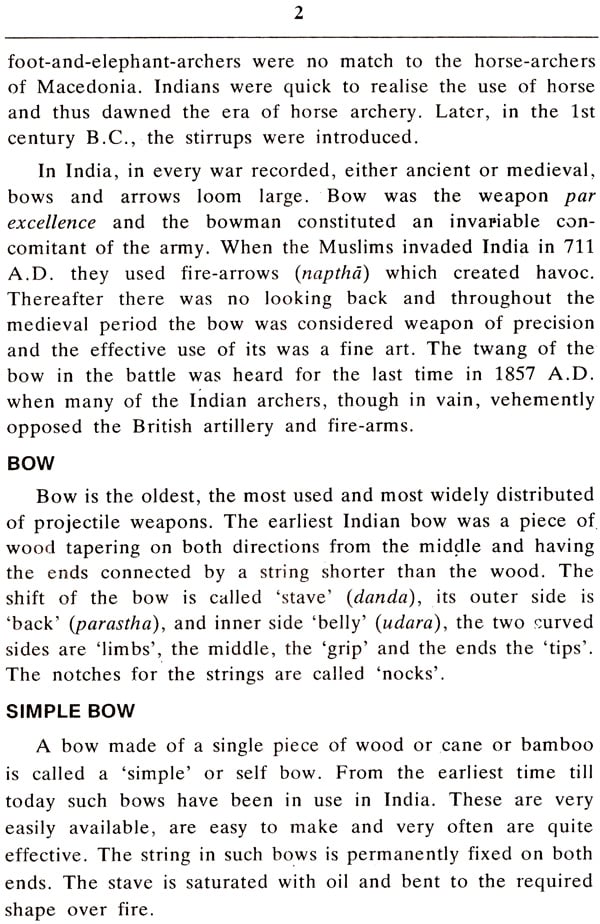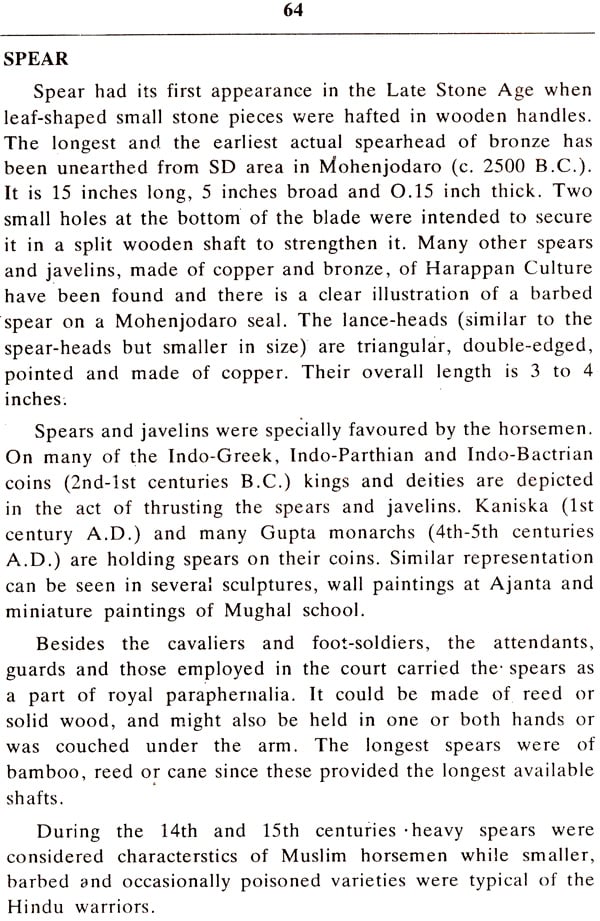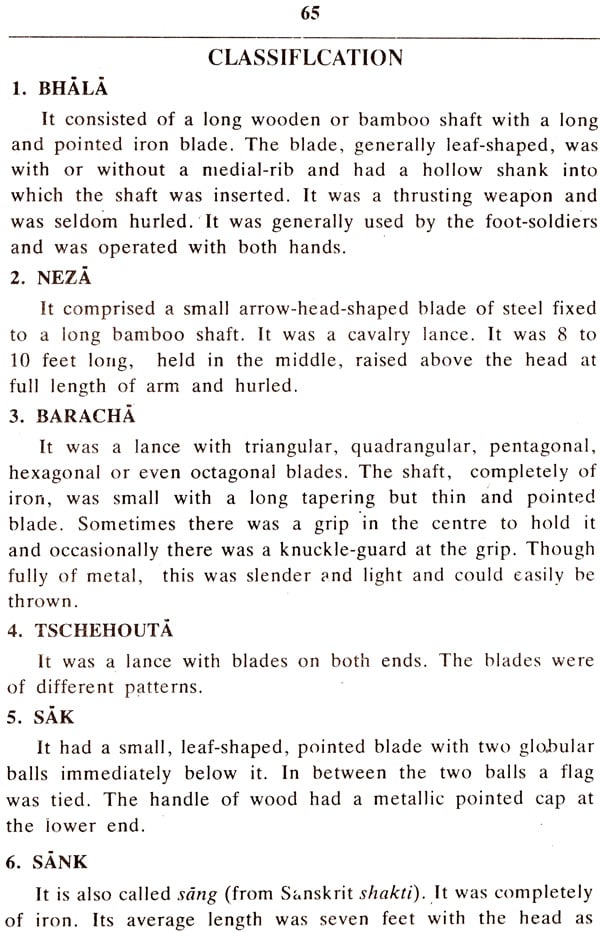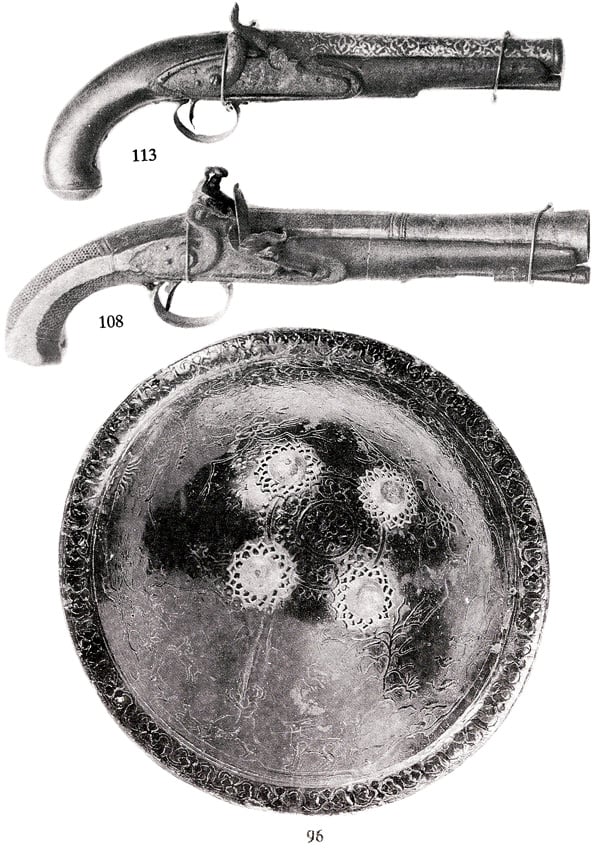
A Catalogue of Arms & Armours In Bharat Kala Bhavan (An Old and Rare Book)
Book Specification
| Item Code: | NAR258 |
| Author: | G. N. Pant And Yashodhara Agrawal |
| Publisher: | Parimal Publication Pvt. Ltd. |
| Language: | English |
| Edition: | 1995 |
| Pages: | 156 (117 B/W Illustrations) |
| Cover: | HARDCOVER |
| Other Details | 10.50 X 7.50 inch |
| Weight | 500 gm |
Book Description
Bharat Kala Bhavan is doing a pioneering work to make the people aware of the cultural heritage of India and its related importance. The Museum has a rare and unique collection of one lac art and archaeological specimens including sculptures, terracottas, coins, seals, pottery, beads, inscriptions, epigraphic records, paintings, textile and objects of decorative art including ivory, jewellery, jade-arms, metal crafts and glass work, etc.
The present catalogue deals particularly with the B.K.B's rarest collection of arms and armours used between 16th to 19th century A.D.
The collection of arms and armours has been put into three types, viz. decorative, ceremonial and functional types. Following weapons have been subjected to the present catalogue, such as bows, arrows and quirers, swords, daggers, maces, battle-axes, spears, shields and fire-arms, etc.
The nucleus of Bharat Kala Bhavan was founded on 1st January 1920 by the name Bharat Kala Parishad. The idea behind the foundation was to make people aware of the cultural heritage of India and its related importance.
The Museum began its activities with a modest collection. In 1929, it was shifted to Kashi Nagari Pracharini Sabha. It was at that time that the name Bharat Kala Bhavan was coined for this Museum. By 1950, the collection grew considerably and the Museum which was created and developed by Late Rai Krishna Dasa, was given over to the Banaras Hindu University. Ever since this Museum has maintained its phenomenal growth and glory. The Museum has unique collections of art and archaeological specimens including sculptures, terracottas, coins, seals and sealing, potteries, beads, inscriptions and epigraphic records, paintings, textile and objects of decorative arts including ivory, jewellery, Jade arms, metal crafts, glass work etc. The present holding is about 100,000 objects. The name and fame of this Museum do not rest on their number of its objects only but on the uniqueness, rarity and qualities of work man ship.
The number of arms and armours in Bharat Kala Bhavan is not much but few of them are outstanding examples of Indian craftsmanship and metallurgy are historically important with inscriptions on them, like the two Jade archer’s rings of Jahangir. Jade objects belonging to Akbar's period are few and rare. One of these rings is inscribed 'Shah Salim', which means that it belonged to Jahangir when he was still a prince and obviously the ring was made during Akbar's reign. The entire arms collection, however, gives a fairly good idea of the types of weapons used between 16th to 19th century A.D. The majority of the objects were purchased through dealers and few were donated by private collectors.
The Collection of arms & in Bharat Kala Bhawan can be put into three typologies :
(i) Decorative type
(ii) Ceremonial type
(iii) Functional type
(i) Decorative type Arms belonging to the emperors and person of high status in the court are usually found to have been worked out with decorative details. Arms with decorative details were not usually made to the used in combat. While attending a court, king and the courtiers of high status used to carry such decorated arms as credentials. The presentation of bejewelled and ornately decorated swords and daggers and some such weapons to the distinguished persons in recognition to their service to the royalty was considered as an epoch making events especially during the grand Mughals. This tradition was maintained for countries that prompted the traditional craftsmen of India to manufacture beautiful along swords and daggers along with their more fascinating hilts. A number of weapons of war, with aesthetically pleasing designs, engravings and inlaying have found their way in various personal as well as museum collections. These examples testify the skill, expertise and professional acumen of our craftsmen of medieval India.
The collection of such weapons in Bharat Kala Bhawan is very modest but qualitatively. This small collection occupies a high order and excellence. Mention may be made of two dagger hilts carved in jade (Acc. Nos.) One of these shows a Neelgai while the second one depicts a lovely face of parrot, No less remarkable is black & white double coloured hilt (Acc. No).
References are there in memoirs of Mughal emperors where officers in the court were presented with arms. In Babarnama, it is related that besides other things, Babar presented his son Humayun a jewelled waist sword (Kamar Shamshir).
**Contents and Sample Pages**
